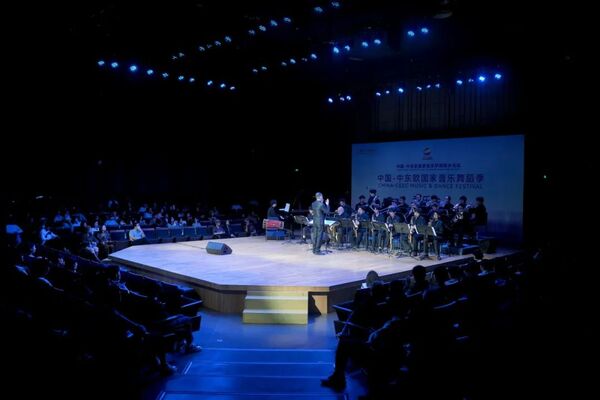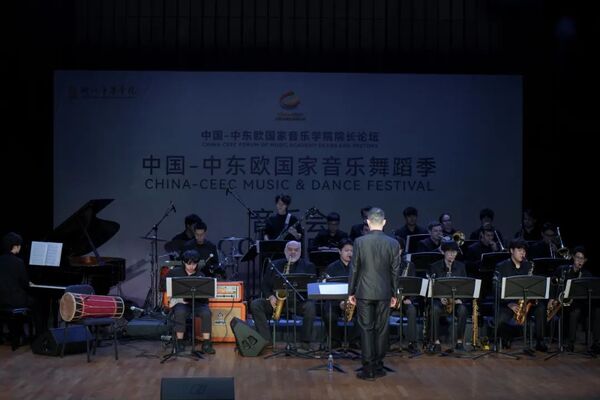
The 4th China-CEEC Forum of Music Academy Deans and Rectors and China-CEEC Music & Dance Festival Kick Off
2023-11-01Music is a universal language that knows no borders. Amid the celebration of the 10th anniversary of the Belt and Road Initiative (BRI), the Zhejiang Conservatory of Music (ZJCM) contributes to renewing the friendship between China and Central and Eastern European countries (CEECs) in its scenic campus in a new era.
On the morning of November 1, the opening ceremony of the 4th China-CEEC Forum of Music Academy Deans and Rectors and China-CEEC Music & Dance Festival took place at the library of ZJCM. Over 40 deans (rectors), experts, scholars, and artists from 15 colleges and universities in CEECs gathered at ZJCM. Together, they envisioned a beautiful blueprint of international music and arts education for China and CEECs in the new era under the theme of “Cooperation and Development”.
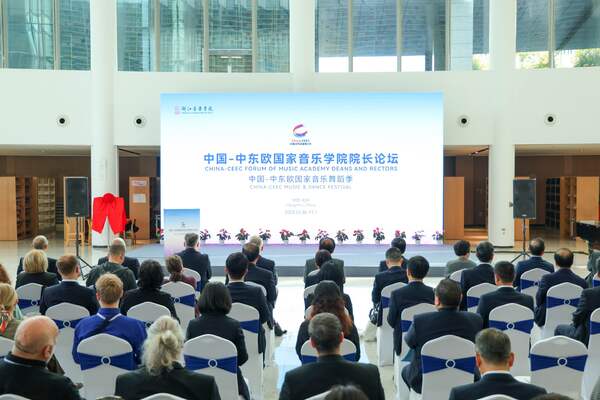

This event, since the establishment of the China-CEEC Music Academies Union in 2017, has been the most attended, prestigious, content-rich, and impactful among previous forums. It also marks the first offline gathering of the Union after the outbreak of the pandemic.
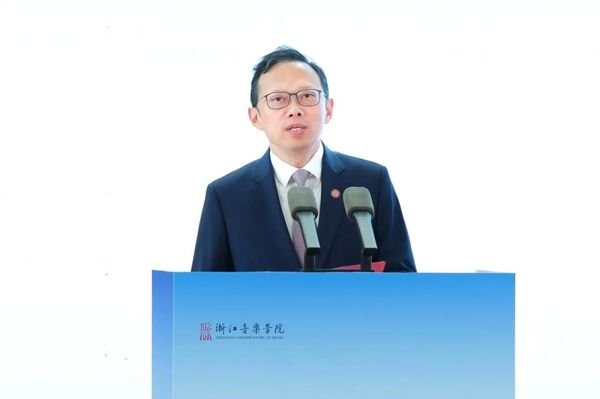
Professor Wang Rui, president of ZJCM, warmly welcomed the deans (rectors) and artists who had traveled from afar. He pointed out that art is a universal language. On the occasion of the 10th anniversary of the BRI, he emphasized the role of the China-CEEC Music Academies Union in promoting cultural and artistic exchanges and enhancing mutual cultural understanding, mutual respect, and mutual trust. He hoped that all relevant parties would work together to boost the advancement of the BRI, as well as of the music and arts in China and CEECs, to contribute to realizing the cooperative development vision of combining individual beauty into common beauty and making the world better through the power of arts.
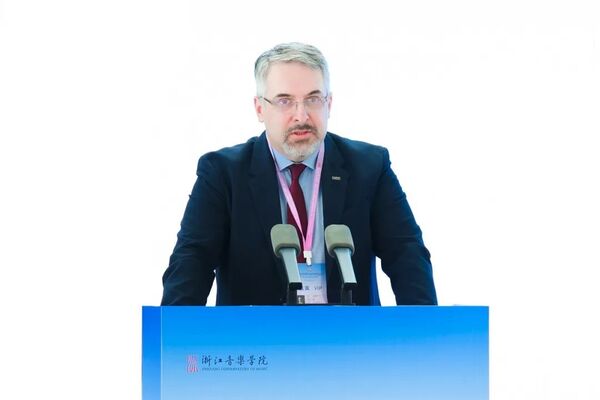
Professor Klaudiusz Baran, rector of the Chopin University of Music, delivered a speech on behalf of the deans of music academies in CEECs. Klaudiusz Baran introduced the basic information about the University and its current exchanges and cooperation with China. He expressed his hope to further the exchanges and cooperation with China and CEECs under the mechanism of the China-CEEC Music Academies Union, to share resources and leverage each other’s advantages in the field of talent cultivation and other areas.

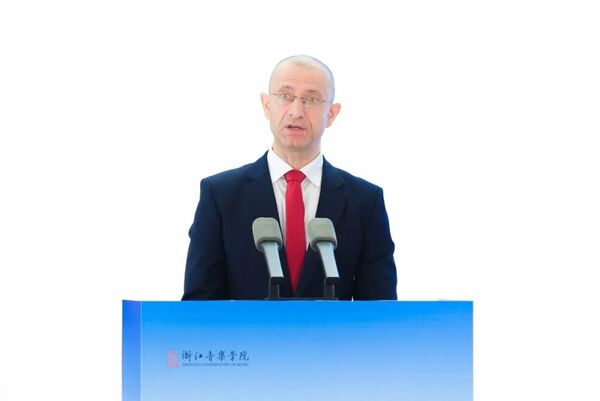
Consul General of Bulgaria in Shanghai Vladislav Spasov and Acting Consul General of Romania in Shanghai Ovidiu Simina delivered speeches respectively. They reviewed the long-standing and deep friendship between China and CEECs, shared the latest achievements attained within the cooperative mechanism between China and CEECs, and expressed their anticipation for deepening cooperation and exchanges via the platform of the China-CEEC Music Academies Union.
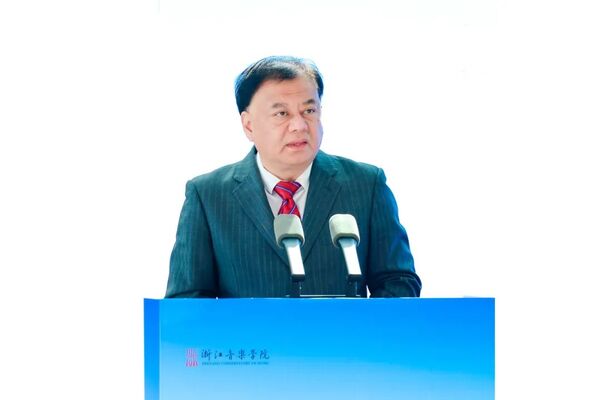
Xu Peng, first-level inspector of the Zhejiang Provincial Department of Culture and Tourism, delivered a speech. He mentioned that this year marked the 10th anniversary of the BRI. Standing at a new historical starting point, he expressed the hope for ZJCM and other colleges and universities within the Union to summarize their cooperation experience over the past six years, improve exchange mechanisms, innovate collaboration methods, and strive to forge this event into an internationally influential music and arts brand injecting new vitality into the cultural cooperation and development of China and CEECs.

Shu Peidong, member of the Leading Party Members Group and deputy director-general of the Department of Education of Zhejiang Province said that CEECs are the birthplace of numerous artists, educators, and scientists as thanks to their profound cultural heritage and abundant educational resources. Shu hoped that by adhering to an open development strategy, ZJCM would continuously deepen cooperation and exchanges with CEECs and fully utilize the platform of the China-CEEC Music Academies Union to work together with universities in CEECs in expanding educational exchanges in the field of arts, strengthening cooperative cultivation of artistic talent, and creating more branded projects, thereby jointly creating a better future for arts education.
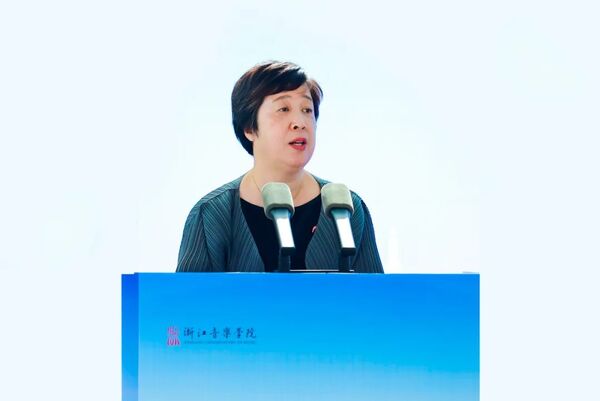
Chen Yanqin, member of the Leading Party Members Group and deputy director-general of the Department of Foreign Affairs of Zhejiang Provincial People’s Government anticipated that member institutions of the China-CEEC Music Academies Union would focus on Chinese and CEECs’ music and cultures and encouraged them to be transmitters and promoters of cultural exchanges and mutual learning between China and CEECs. Chen expected joint efforts in strengthening practical cooperation, facilitating people-to-people connectivity, and furthering cultural exchanges between China and CEECs.

Rector of the Eötvös Loránd University (ELTE) László Borhy and ZJCM President Wang Rui jointly unveiled the Kodály International Musical Culture Center. The establishment of the Center at ZJCM marks another significant achievement in the in-depth collaboration between ZJCM and ELTE, following their joint effort to organize a professional master’s program in music. The Center also represents an exciting new starting point for cultural exchange in the field of music and arts between China and CEECs. The Center is positioned as an academic center and discipline base that integrates music education, composition, performance, and theories, placing equal emphasis on practical creation and cultural research. It provides a new platform for music and arts cooperation between China and Hungary. Both parties will collaborate to establish a Chinese Musical Culture Center at ELTE.
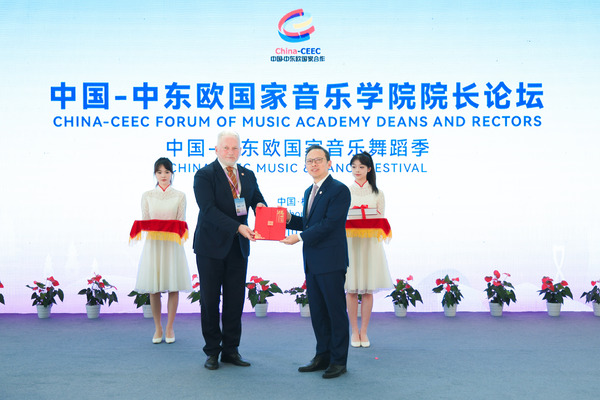
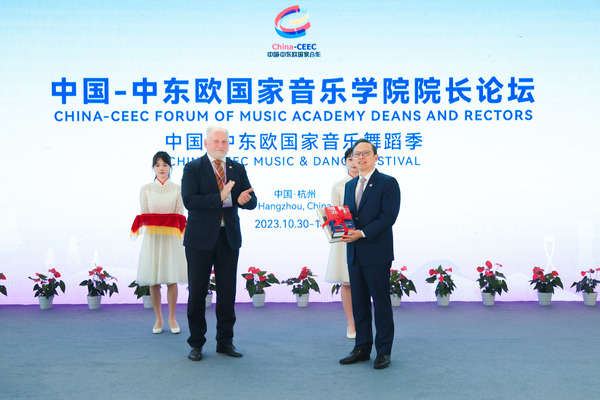
Mr. László Borhy gifted a Hungarian-Chinese dictionary and a Chinese-Hungarian dictionary edited by Professor Huba Bartos and Professor Hamar Imre from ELTE to ZJCM, along with a batch of books and materials related to Kodály.
The opening ceremony was presided over by ZJCM Vice President Dong Dejun.
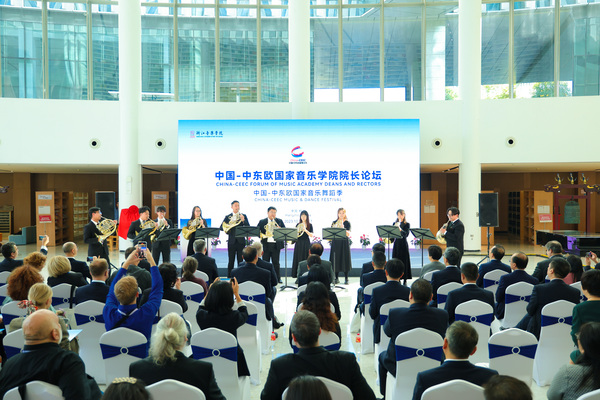


Artists from ZJCM and the Liszt Ferenc Academy of Music presented brilliant performances for guests.
On the morning of the same day, the first session of the China-CEEC Forum of Music Academy Deans and Rectors was convened in Conference Room 103 of the Administrative Building. Discussions focused on the theme of “Cooperation and Development: Music and Arts Education in the New Era”. One of the most important achievements of this Forum is the unanimous adoption of the Constitution of the China-CEEC Music Academies Union by the member institutions of the Union. The Chapter further clarified the Union’s purpose, organizational structure, and working mechanism. Moreover, it absorbed new members to the Union, including the National Academy of Music “Prof. Pantcho Vladigerov” of Bulgaria, ELTE in Hungary, and the Karol Szymanowski Academy of Music and the Academy of Music in Łódź in Poland. All this signifies the start of a new journey for the Union.
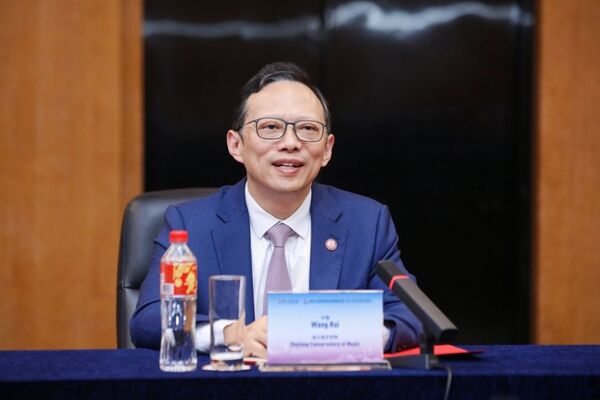
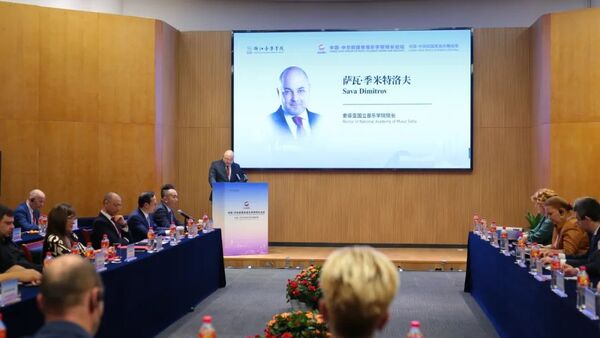
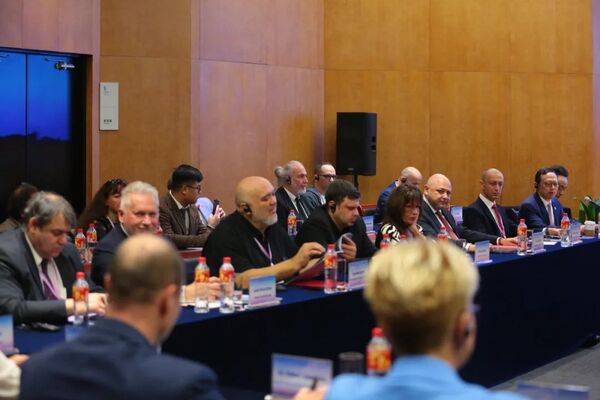
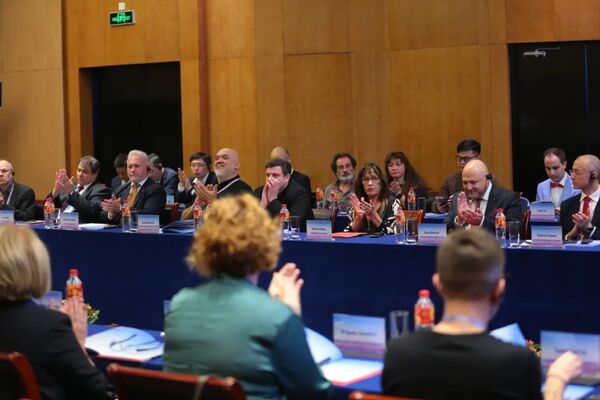
During the forum period, 26 high-standard academic activities and eight high-level activities of exchanges and performances were also launched. Experts, scholars, and renowned artists from major music and art education institutions in Central and Eastern Europe lectured in ZJCM’s classes and performed on ZJCM’s stage, bringing cross-cultural academic summits and artistic feasts for ZJCM students and teachers, as well as field audiences, playing a “magnificent symphony” on the China-CEEC friendship in the era.
